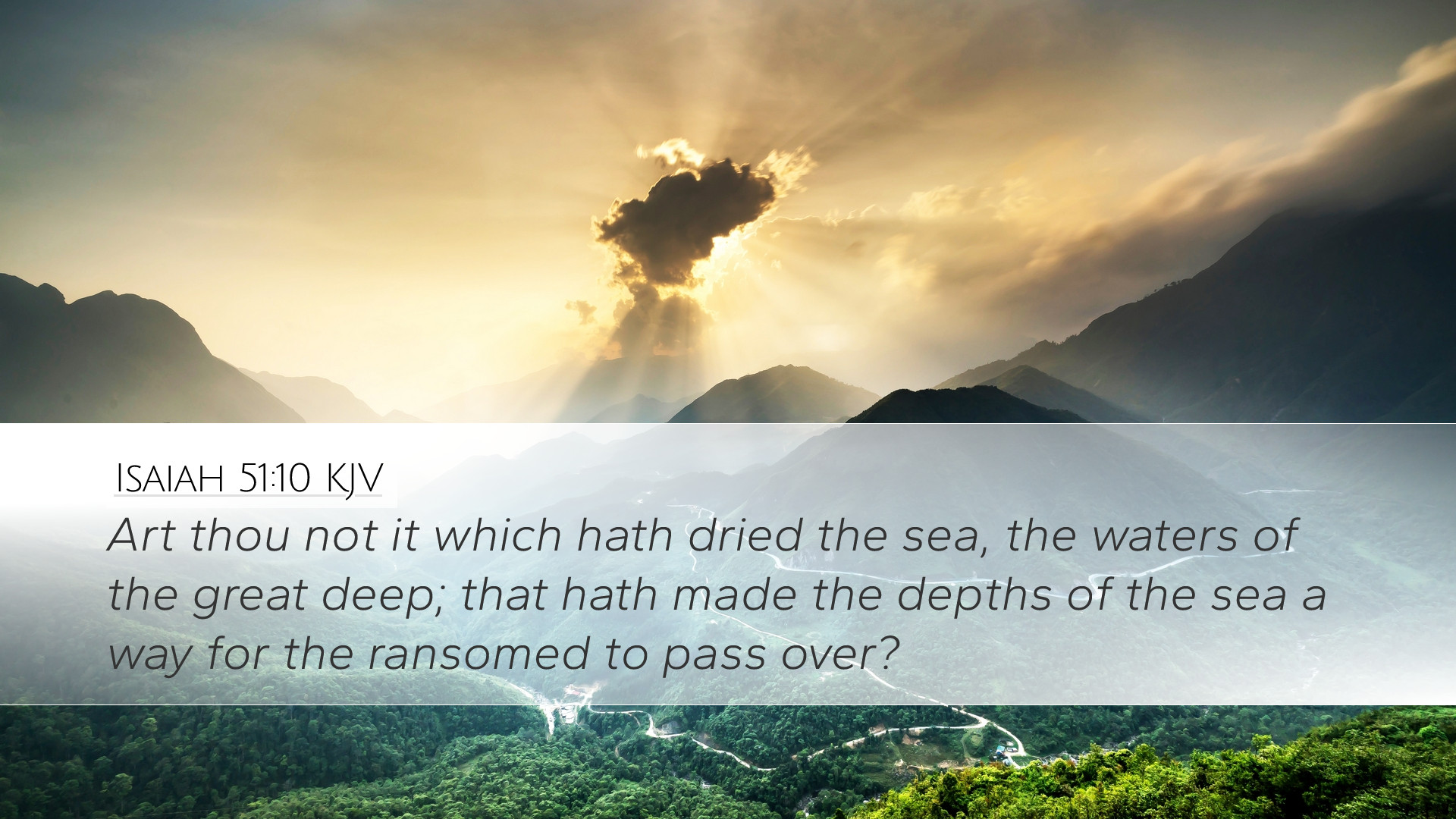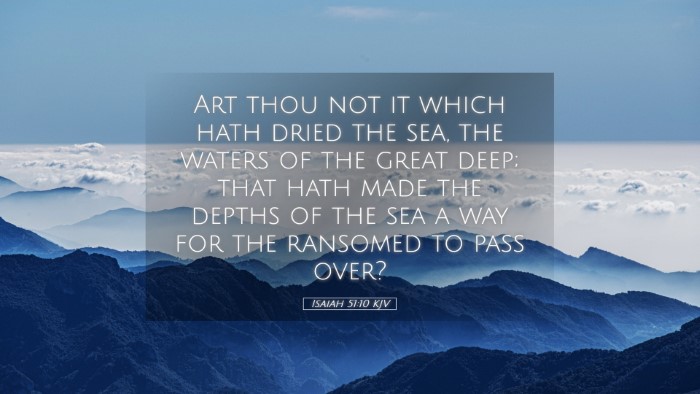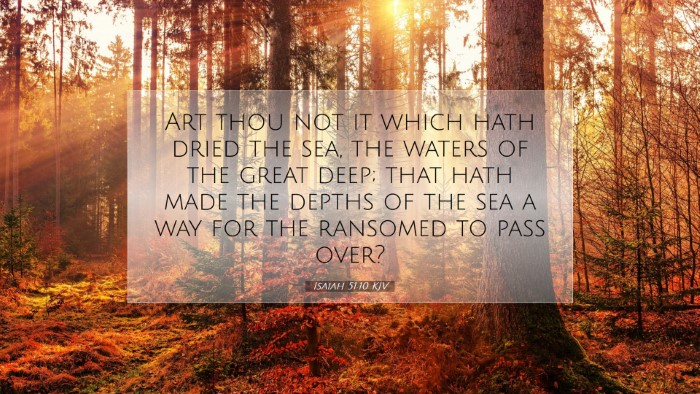Commentary on Isaiah 51:10
Isaiah 51:10 states:
"Art thou not it which hath dried the sea, the waters of the great deep; that hath made the depths of the sea a way for the ransomed to pass over?"
This verse is part of a larger context where the Lord comforts His people, reminding them of His power and ability to save.
Overview
In this passage, we see a rhetorical question that invites reflection upon God's mighty acts in history, particularly in relation to Israel's exodus from Egypt. It signifies both God’s sovereignty over nature and His intimate involvement in the redemption of His people.
Insights from Matthew Henry
According to Matthew Henry, this verse underlines the greatness of God's power and His providence. He emphasizes the following points:
- God’s Sovereignty: Henry notes that God is the one who “dried the sea,” illustrating His complete control over natural elements.
- Redemptive History: The reference to making a way through the sea signifies God's active involvement in the salvation of His people, drawing a line from the Exodus to the hope of future deliverance.
- Encouragement for God’s People: The verse serves as reassurance to those feeling oppressed, reminding them of a God who has delivered them before and can do so again.
Insights from Albert Barnes
Albert Barnes further expounds on the verse by pointing to God’s power as a source of comfort and hope for Israel:
- The Nature of Deliverance: Barnes suggests that “dried the sea” symbolizes not only a physical deliverance but also a spiritual one, as it represents God's ability to part barriers that stand between Him and His people.
- Praise for Historical Acts: According to Barnes, acknowledging God’s past actions stirs faith for the present and future. He underscores the importance of recalling God's previous acts of salvation as a basis for trust.
- Hope in the Coming Restoration: The deliverance implied here anticipates further acts of salvation and restoration for Israel, which can be seen through the lens of the coming Messiah.
Insights from Adam Clarke
Adam Clarke offers a theological reflection on the implications of this verse:
- Symbolism of the Sea: For Clarke, the sea symbolizes chaos and danger. God’s act of drying up the sea represents His capacity to bring order and peace from chaos.
- Theological Implications: Clarke highlights that this verse anticipates the coming of Christ as the ultimate Redeemer, who would pave the way for salvation through His death and resurrection.
- Invitation to Faith: Clarke emphasizes a call to faith for the people of God, encouraging them to trust in His continued ability to deliver and provide.
Application for Pastors and Theologians
This verse presents several applications that are significant for pastors, theologians, and scholars:
- The Promises of God: This passage can be used to comfort congregations, reminding them of God’s faithfulness in history and His ongoing commitments.
- Teachings on Redemption: The historical context provides rich material for teaching on the theme of redemption, which can be correlated with New Testament theology of salvation.
- Encouragement in Trials: In times of trouble, reflecting on God’s past deliverances can strengthen faith and foster hope, providing pastoral care that draws upon the strength of God’s mighty acts.
Conclusion
Isaiah 51:10 serves as a profound reminder of God’s omnipotence and His faithfulness toward His people. By contemplating the depth of this verse, both individuals and communities can find solace and strength in the knowledge that God, who has demonstrated His power in the past, is still capable of miraculous interventions in the present and future.


